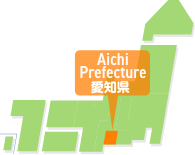How do you throw away trash in Japan? We'll introduce you to the proper way to separate your trash and other things to be careful of!
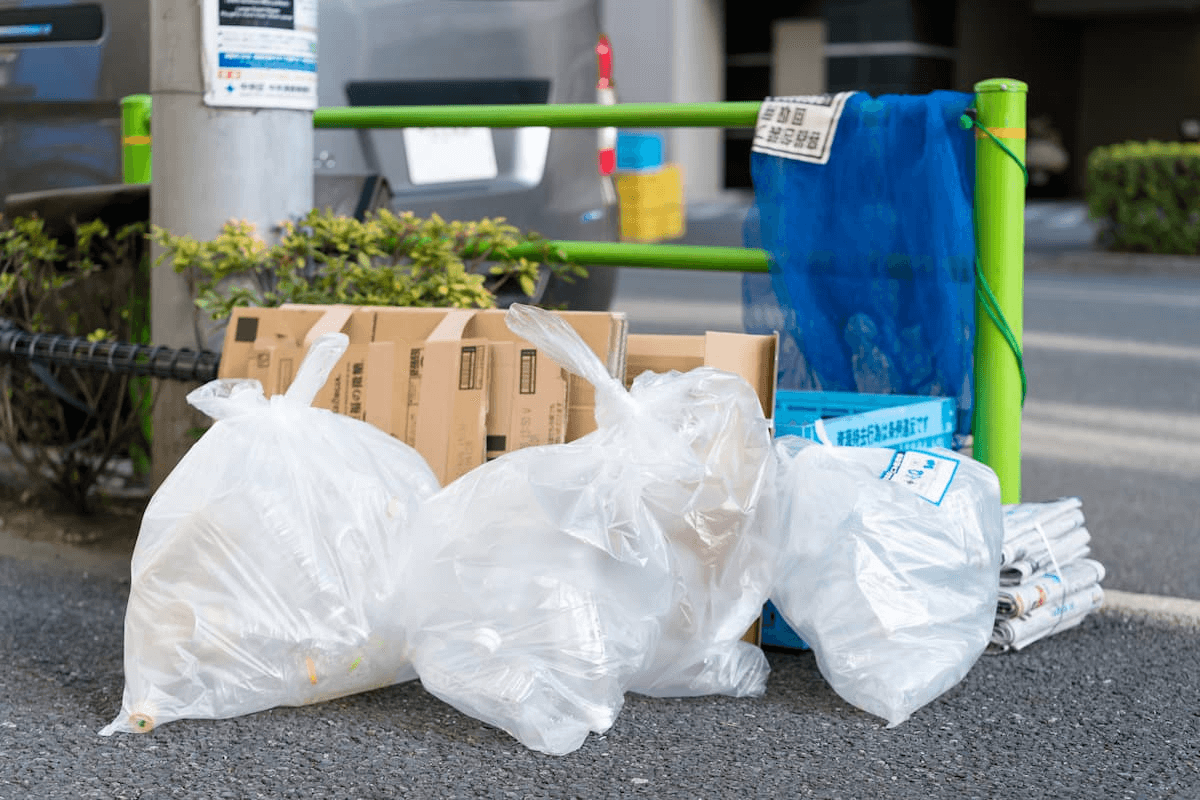
Hello, this is Kano from JAC (Japan Association for Construction Human Resources).
One thing that foreigners find difficult while living in Japan is how to throw away trash.
The way to throw out garbage varies depending on the area you live in, so if you throw it out the wrong way, you may get into trouble with people living nearby, such as not being able to have your garbage taken away.
This time, we will introduce how to throw away garbage in Japan.
There are also some things to be careful about when disposing of garbage, so please refer to this.
How do you throw out and separate garbage in Japan? When is the best time to throw it out?
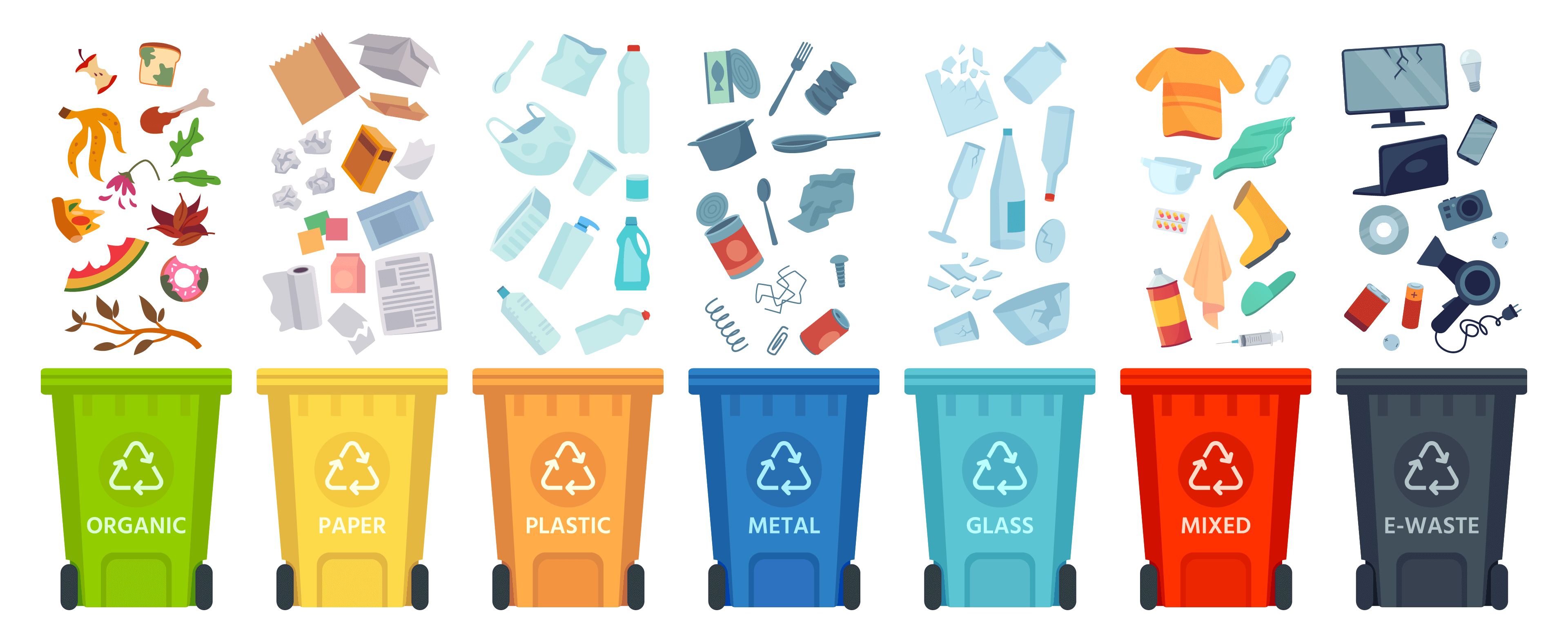
In Japan, throwing away trash is also called "putting out the trash."
For example, if someone says "Please take out the trash," it means "Please leave it in the designated area."
In Japan, when throwing out garbage, you separate it.
Sorting means separating garbage into categories such as "burnable items," "PET bottles," "glasses," "plastic," and "paper."
Each type of garbage has its own designated place to be thrown out, as well as designated days and times for disposal.
When throwing out trash, you must always check the rules.
However, the way you dispose of garbage may vary depending on the city, town, apartment or condominium you live in.
Next time, we will explain in more detail what you should be careful about when disposing of garbage.
Things to be careful about when separating and throwing away garbage in Japan
In Japan, there are strict rules for how to throw away trash.
When throwing out trash, be sure to follow the rules.
There are some points to be careful about and some garbage that requires special disposal methods.
Let me introduce them one by one.
In some areas, you must purchase designated garbage bags.
Depending on where you live, you may be required to use designated bags to throw away your garbage.
In some areas you may need to buy bags to throw away your trash.
Also, even if you are not using a designated bag, there are rules regarding the bag you use to put your garbage in, such as "it must be transparent so that you can see inside."
The method of sorting varies depending on the region.
In Japan, you have to separate your garbage according to type before throwing it away.
The method of separating garbage varies depending on where you live.
For example, in some areas you may throw out burnable trash and plastic together, but in other areas you must separate them.
In many areas, food waste such as vegetable peelings and leftovers can be disposed of as burnable garbage.
However, in some areas, food waste must be disposed of in a separate bucket.
There are also differences in how trash is disposed of.
In some areas, plastic bottles and cans must be crushed before disposal, while in other areas they can be thrown away without being crushed.
Disposing of plastic bottles is especially difficult.
In Japan, we remove the caps and labels from plastic bottles and throw them away.
Depending on the region, plastic bottle caps should be thrown out as plastic waste or in a special collection bin for plastic bottle caps.
Dispose of the labels as plastic waste.
There is a set time and day for taking out garbage
Every neighborhood has its own set time and day for putting out garbage.
The time for putting out garbage varies depending on the area you live in. In some areas garbage must be put out by 8am, while in other areas it must be put out at night.
Also, if you live in an apartment or condominium and have a designated garbage disposal area, some places have a rule that you can put out your garbage at any time of the day.
There are also designated days on which you can throw out your trash.
Some things are set for each day, such as "burnable garbage on Mondays and plastic bottles on Tuesdays."
In some cases, you may only be able to put out your trash once every two weeks, such as "plastic bottles on the first and third Wednesdays, non-burnable trash on the second and fourth Wednesdays."
* Wednesday of the 1st week: the 1st Wednesday of the month, Wednesday of the 3rd week: the 3rd Wednesday of the month
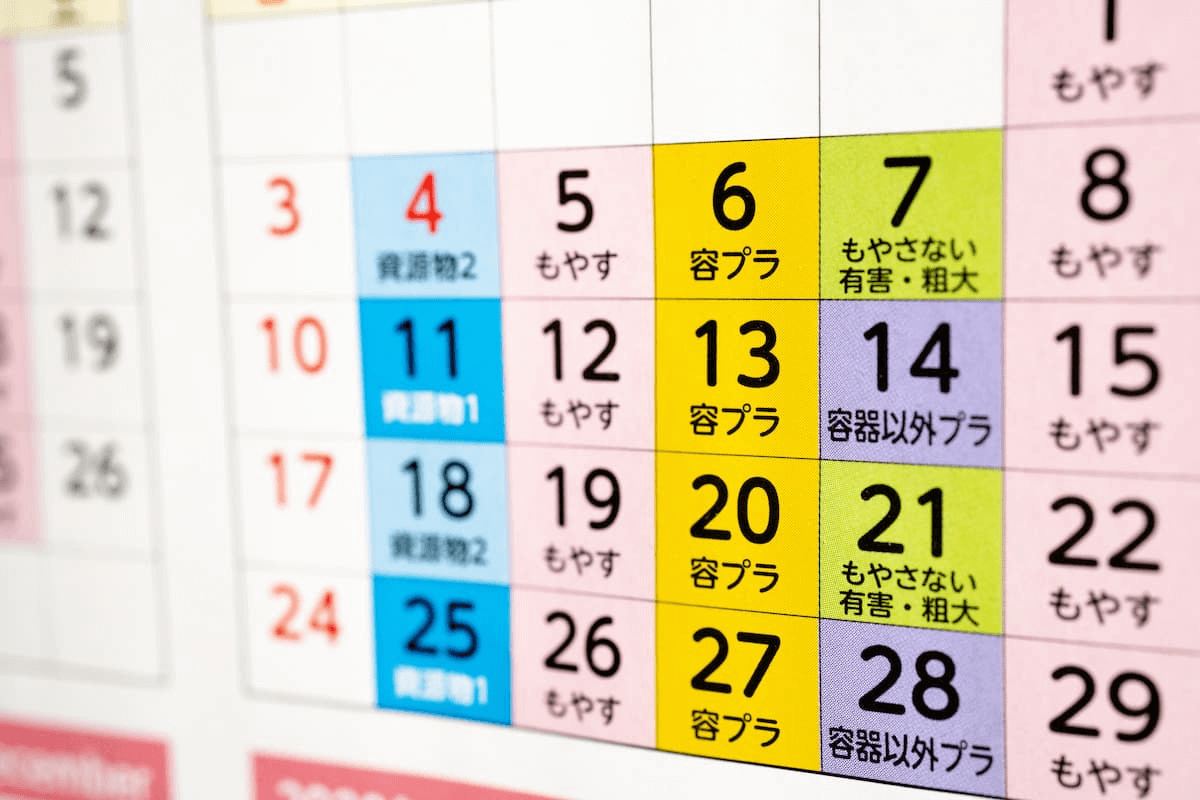
There is a designated place to throw away trash
Trash must always be thrown out in designated places.
In some places, trash is collected in one place and dumped in front of each house.
Some condominiums and apartments have designated garbage disposal areas.
Make sure to check where the garbage dump is located in your area, condominium, or apartment.
Recyclable waste such as plastic bottles, paper cartons, glass bottles, and cans may be disposed of in baskets in a location separate from the garbage dump.
Also, do not throw away household trash in trash cans in public places such as convenience stores, supermarkets, or parks.
Some trash cannot be collected
"Bulky garbage" and "recyclable home appliances (four types of home appliances)" cannot be disposed of in garbage dumps.
Bulky waste refers to large items such as futons, carpets, bicycles, and electrical appliances.
For bulky waste, you can call the waste management company and apply. Then, you can purchase a "bulk waste sticker" to have the waste collected, or you can take it to a designated waste disposal site.
Recyclable home appliances (four types of home appliances) are waste defined by the Home Appliance Recycling Law, which promotes the recycling of home appliances.
Air conditioners, televisions, refrigerators, washing machines, clothes dryers, etc. are considered recyclable home appliances and cannot be disposed of as regular garbage.
If you want to dispose of it as garbage, you will need to pay a recycling fee of around 1,000 to 6,000 yen and either have it collected by the store where you bought it, or take it to a designated collection point in your area.
What are some examples of trash disposal issues that foreigners are likely to get into in Japan?
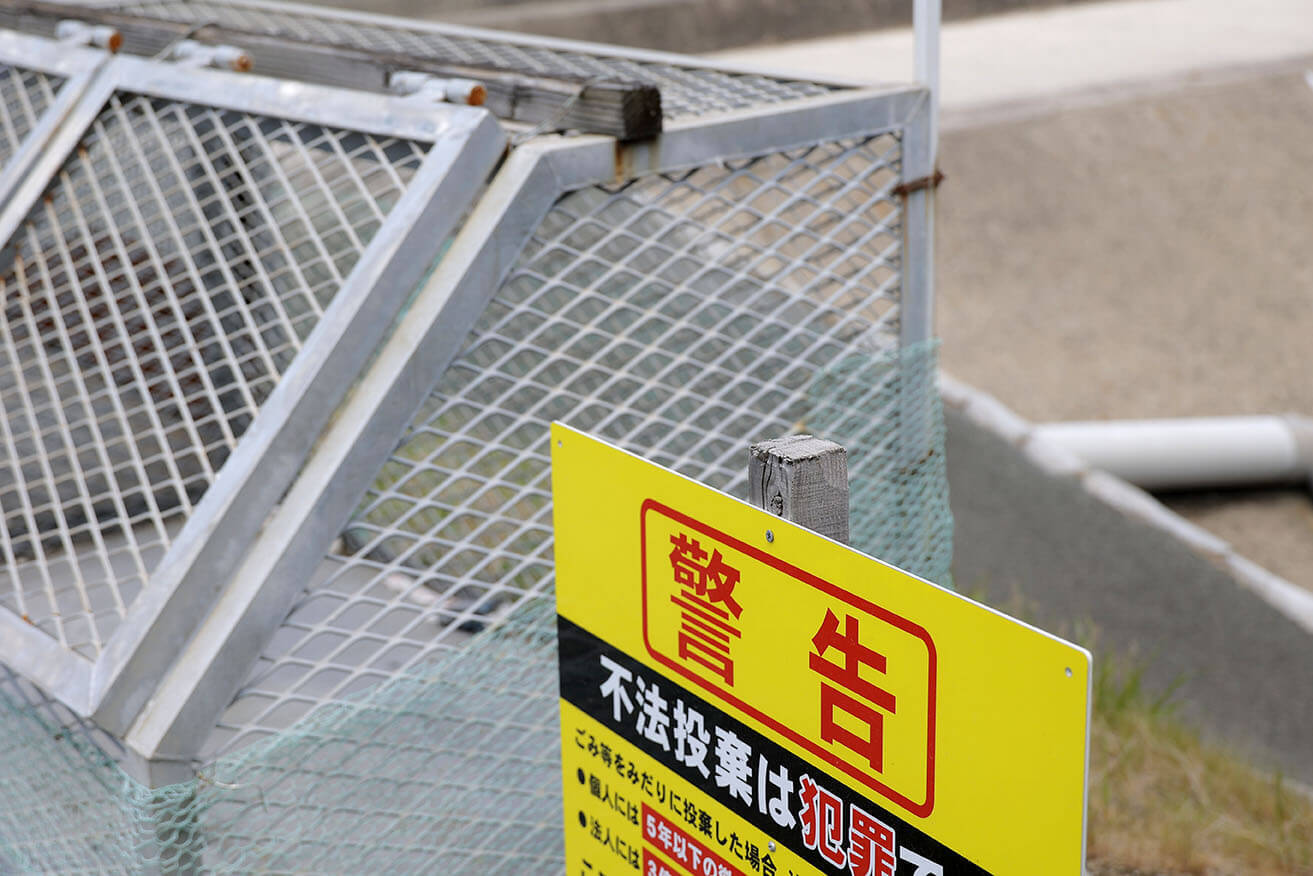
Disposing of garbage in Japan is very difficult, and even Japanese people often make mistakes.
Foreigners should also learn how to dispose of garbage properly so they don't make any mistakes.
Here are some common ways to dispose of garbage that can cause problems.
Throwing out the trash too early
In areas where garbage must be put out by 8am, some people put it out the night before.
Don't put out your trash too early either.
If you put out your trash too early, the crows may rummage through it and make the trash area dirty.
Garbage can also prevent cars and people from passing through.
Garbage separation is not possible
If different types of garbage are mixed together, they will not be collected.
Please separate your trash properly.
If any garbage is not collected, I always take it home and sort it before putting it out again.
Take your trash home
You may not take home trash that other people have put out.
If you are found to have taken rubbish with you, you may have to pay a fine.
I don't know how to throw out the trash
Do you know where to throw out your garbage, what time and day you can throw it out, and how to separate your garbage?
When you move, you are given a garbage disposal calendar, but it is written in Japanese, so many people have trouble reading it.
Some areas have created "garbage disposal calendars" written in the native language to make them easier for foreign residents to understand.
In most areas of Japan, there are strict rules regarding how to dispose of garbage.
If you look at the garbage collection calendar and are not sure about anything, ask your local city hall or the management company of your apartment or condominium.
If you don't know who to ask, it might be a good idea to ask someone at work.
Summary: If you don't know how to separate or dispose of your garbage, please ask for help.
Even Japanese people make mistakes and get confused about how to throw away trash in Japan.
It's very difficult for foreigners.
In Japan, we separate garbage by type.
Sorting methods vary depending on the area you live in, so be sure to check before moving in.
There are set times and days for putting out garbage.
If you put out your garbage at any other time, it may not be collected and you may get into trouble.
Be careful because there are some things you can put out in the garbage dump and some you can't.
If you don't know the Japanese garbage collection calendar, please ask your local government office or management company for advice.
Some places have created trash collection calendars written in the native language.
About us, JAC
JAC(Japan Association for Construction Human Resources)is an organization that supports all Specified Skilled Workers working in the Japan construction industry. We work with companies that accept Specified Skilled Workers to create a work environment that is easy for everyone to work in.
We're also taking the exams you need to become a Specified Skilled Workers!
And JAC has received many requests for job offers from companies that want Specified Skilled Workers to work for.
Specified Skilled Workers Wanted! Job Listings
For those of you who want to work in Japan using Specified Skills, we are introducing jobs that match your occupation and aspirations!
If you have any problems, please feel free to contact us!





